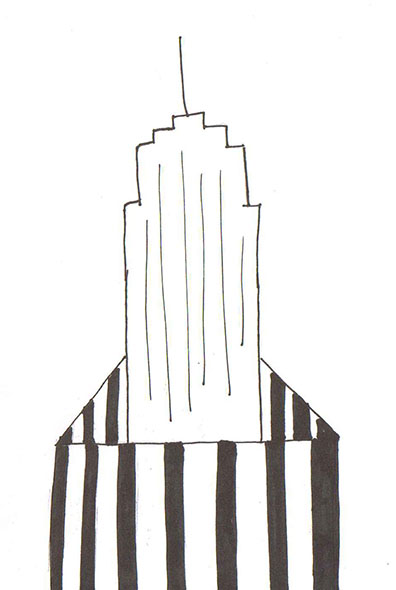New New York pre-k program has potential

Graphic by Clara Ilkka
New York officials are implementing a pre-K proposal for all students.v
May 21, 2014
In the United States, the average child starts public schooling at five years old. That is their entrance into kindergarten and a whole new life. They are there to learn all kinds of new, unimaginable things. Things like shapes, colors and numbers. It is also, for most kids, the start of their lives, being away from their mothers for an extended period of time and being surrounded by a bunch of other kids. It is their first experience in a social environment. Now, New York is trying to start this whole process, one year sooner with statewide, tax-funded, free Pre-K schooling for all kids.
After a long and hard fought battle, New York City Mayor Bill de Blasio and New York Governor Andrew Cuomo have finally succeeded in the passing and soon to be implementing of a public program that will provide free public Pre-K schooling to four year old students. It will be funded through public state taxes and will cost approximately $1.5 billion over five years.
After many years of fighting and determination, Mayor Blasio has full confidence in this bill’s success after implementation. His whole campaign has been based on statewide Pre-K programs.
“De Blasio had made a universal pre-kindergarten program a cornerstone of his successful mayoral campaign last year. He proposed paying the $340 million tab by raising income taxes on wealthy New York City residents, although any increases would have to be approved by the state legislature. De Blasio said on Saturday that the $300 million would be enough to build out the program,” wrote Reid Wilson, a columnist from the Washington Post.
However, it was not a perfect success for the mayor of the largest city in the United States.
“But de Blasio didn’t get everything he wanted: Cuomo’s budget increased tuition funding for charter school students over a three-year period, and it requires New York City to find locations for charter schools either within existing public school buildings or in private space. De Blasio has been critical of charter schools,” wrote Wilson.
There is a lot of promise from this new program, regardless of the few setbacks.
“It’s not just an aggressive undertaking for statewide Pre-K, it’s also about a quality Pre-K program. We’ve rewritten the rules for Pre-K in New York,” Cuomo said in a weekend conference call announcing the deal.
“An advantage of preschool for four-year-olds is that it helps kids get ready to start their formal education. While at preschool, four-year-olds are exposed to numbers, letters, shapes and other general content areas that they will need to be successful in kindergarten. According to Linda Broatch, M.A. in education with a focus in child development, high-quality preschool programs engage kids in ways that help them acquire pre-math and pre-literacy skills while allowing them time to play. Preschool also helps four-year-olds learn the basics of being in school, such as how to raise their hands and how to share the teacher’s attention,” wrote Carissa Lawrence, a journalist from seattlepi.com.
There are many worries involved in this program. The first, is that it is publicly funded. That means many people will be paying to educate students for an extra grade. People with no young children have an issue paying for something they may see as useless. Other possible effects of this program may be psychological. It has yet to be seen what will happen when you separate a child from its mother at such a young age.
Regardless of the risks, there are far too many positives for this bill not to occur. It is only a hope that this idea may spread to the rest of the United States so that Americans may be better educated.







Hannah Crawford • May 27, 2014 at 9:30 pm
Interesting topic. I think it is a good idea to start schooling earlier in a person’s life, this will make it easier on parents as far as daytime care goes. This article was well written and flowed nicely. It stayed interesting though it could have been easy for the topic to get slightly boring. Good job.
Clara Ilkka • May 26, 2014 at 1:38 pm
I think that this is a great idea. Despite the extra cost, it is known that early childhood education is key to success later. Having this available also means that parents who would have to pay for day care can now send their kids somewhere safe for free. This article really relied on the quotes from other sources- I’d like to see more of the author’s opinion highlighted through the piece, instead of right at the very end of the article.